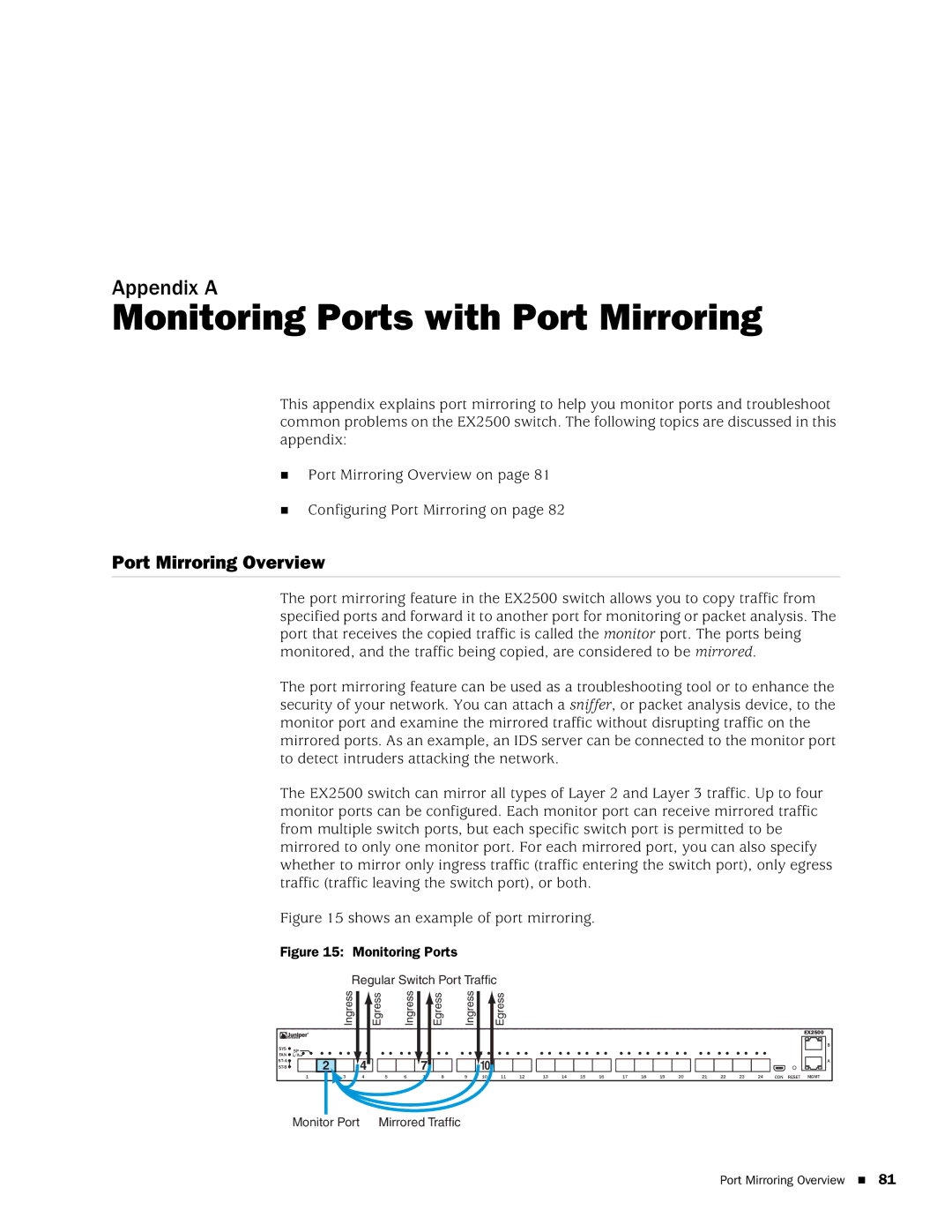
Appendix A
Monitoring Ports with Port Mirroring
This appendix explains port mirroring to help you monitor ports and troubleshoot common problems on the EX2500 switch. The following topics are discussed in this appendix:
Port Mirroring Overview on page 81
Configuring Port Mirroring on page 82
Port Mirroring Overview
The port mirroring feature in the EX2500 switch allows you to copy traffic from specified ports and forward it to another port for monitoring or packet analysis. The port that receives the copied traffic is called the monitor port. The ports being monitored, and the traffic being copied, are considered to be mirrored.
The port mirroring feature can be used as a troubleshooting tool or to enhance the security of your network. You can attach a sniffer, or packet analysis device, to the monitor port and examine the mirrored traffic without disrupting traffic on the mirrored ports. As an example, an IDS server can be connected to the monitor port to detect intruders attacking the network.
The EX2500 switch can mirror all types of Layer 2 and Layer 3 traffic. Up to four monitor ports can be configured. Each monitor port can receive mirrored traffic from multiple switch ports, but each specific switch port is permitted to be mirrored to only one monitor port. For each mirrored port, you can also specify whether to mirror only ingress traffic (traffic entering the switch port), only egress traffic (traffic leaving the switch port), or both.
Figure 15 shows an example of port mirroring.
Figure 15: Monitoring Ports
Regular Switch Port Traffic
SYS
SP
FAN ![]() L/A
L/A
2 | |
Ingress | Egress | Ingress | Egress | Ingress | Egress |
|
|
|
|
|
|
|
|
|
|
|
|
![]() 4
4 ![]()
![]()
![]()
![]() 7
7 ![]()
![]()
![]()
![]() 10
10 ![]()
![]()
![]()
![]()
![]()
![]()
![]()
![]()
![]()
![]()
![]()
![]()
![]()
![]()
![]()
![]()
![]()
![]()
![]()
![]()
EX2500 |
B |
A |
1 | 2 |
3 | 4 | 5 | 6 | 7 | 8 | 9 | 10 | 11 | 12 | 13 | 14 | 15 | 16 | 17 | 18 | 19 | 20 | 21 | 22 | 23 | 24 | CON RESET MGMT |
Monitor Port | Mirrored Traffic |
Port Mirroring Overview 81
